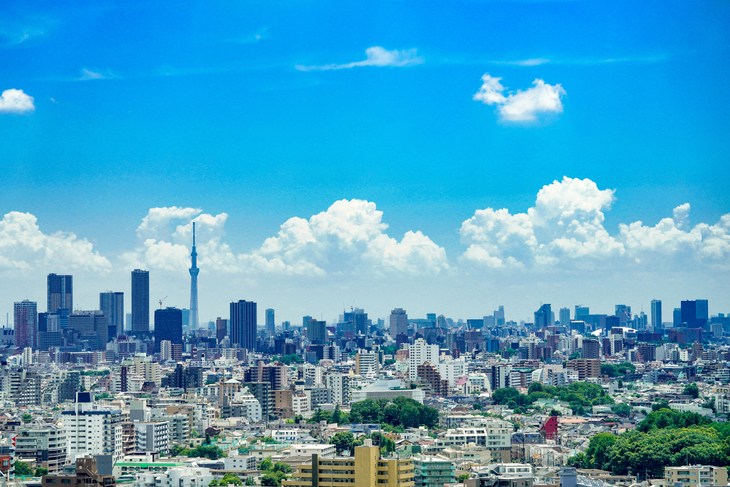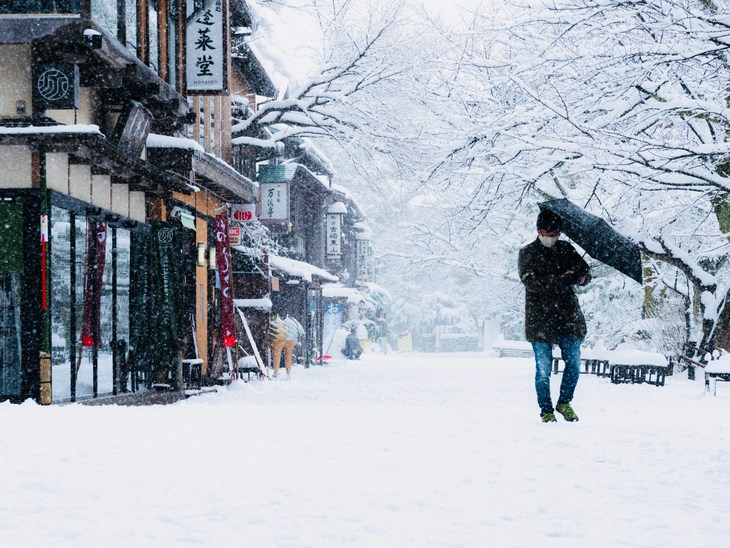Is Healthcare in Japan Expensive? All About Japanese Health Insurance

Japan has a reputation for being one of the safest and healthiest countries in the world. Japan's high life expectancy comes at least in part from having some of the best medical care in the world available to its residents. However, this excellent healthcare isn't free. So as a tourist or as someone coming to live in Japan long-term, how can you access Japan's healthcare system without breaking the bank?
Here's everything you need to know about Japan's health insurance system and how to sign up if you're a new resident in Japan. If you're a tourist or coming to Japan on business, skip to further down the article to learn more about some travel insurance options you should consider in case of an emergency.
How Japan's Healthcare System Works
Japan has a "universal healthcare system," in the sense that all residents of Japan, be they citizens or foreign residents, must have health insurance. While being enrolled in health insurance is mandatory, it does not mean that Japan's national health insurance covers all medical fees. Usually, you will only be responsible for paying 30% of your medical bills when visiting a medical institution. Health insurance usually covers most regular hospital visits (including dental clinics) as well as prescription medicine costs, and additional reimbursement is possible for hospitalization, surgery, and childbirth. That being said, there is a range of possible medical expenses not covered by Japanese health insurance, including regular health checkups, cosmetic surgery, orthodontics, and vaccinations.
When you visit a hospital or clinic that accepts health insurance, make sure that you bring your insurance card! Present the card when you arrive and the clinic will take care of calculating how much you need to pay for the visit. If you forget your card you will need to pay the full amount, but you can apply for reimbursement later.
So for example, if you have a cold and need to visit the doctor, you will only pay a little less than ¥1000 if the cost of the doctor's visit without insurance is ¥3000. Then, if the medicine the doctor prescribes you would cost ¥1000 at the pharmacy, you'll only pay around ¥300.
There are two major types of health insurance in Japan, Employee's Health Insurance (EHI) and National Health Insurance (NHI), so now let's look at what they are, which you should enroll in if you are a new resident in Japan, and how to go about enrolling.
Which Health Insurance is Right for You?
Employee's Health Insurance (EHI)
If you are hired by a Japanese company and working full-time, you must be enrolled in the company's health insurance system. When you start working for the company, they will take care of enrolling you in their health insurance and issue you a health insurance card you must have with you when you visit a hospital. Your insurance premiums will be paid for by the company and automatically deducted from your salary. This insurance will also usually cover any dependent members of your family. Depending on your employer's specific health insurance policy, Employee's Health Insurance may cover a wider range of treatments than the other system in Japan, the NHI. On top of that, because the company helps pay for your insurance premiums, this system can also be cheaper than the NHI. As long as you work full-time, this is the health insurance you will be covered by.
National Health Insurance (NHI)
If you do not qualify for EHI, you must enroll in the NHI. If you are a student, self-employed, or a freelancer, this is most likely the health insurance you will need to look into. Your insurance premiums need to be paid monthly and will be calculated based on your income.
To enroll in the NHI, you'll first need to register your residence at your local municipal office. You must do this within two weeks of arriving in Japan or within two weeks of moving to a new city. You will need your Residence Card (issued to you at the airport when you arrived in Japan) and passport to register your residence. After that, you can enroll in the NHI at the same municipal office, on the same day if you want to. You will need to present your Residence Card, passport, and statement of income so that your insurance premiums can be calculated correctly. Since every city handles the NHI separately, it's important to re-submit your income if you move to a new area or city. Once you are enrolled, the city will mail you your new health card shortly.
Travel Insurance Plans for Tourists
If you are a long-term foreign resident of Japan and are enrolled in one of these two health insurance systems, you don't need to worry about going to the hospital. But if you're a tourist or visiting Japan temporarily, you should strongly consider purchasing some kind of travel insurance plan to help cover the costs in the unfortunate case you need to visit a hospital while you're here.
Here are some tips for what to consider when purchasing travel insurance, as well as a couple of options for travel insurance in Japan.
Does the provider offer Cashless Medical Insurance?
Some travel insurance providers now offer cashless medical insurance plans, which cut out the sometimes frustrating or time-consuming steps of having to pay for your treatment out of pocket and file an insurance claim with the company after leaving the hospital. Instead, the travel insurance provider will directly pay the hospital for you, making your life much easier.
Do you need to sign up before arriving in Japan?
Some travel insurance providers require you to buy their travel insurance plans before you leave your home country, while others allow you to buy or extend your coverage once you are already in Japan. This can be very convenient if you suddenly find yourself sick or injured in Japan or just forgot to buy insurance before you leave your home country.
Health Insurance Options
Here are a couple of different travel insurance options that could be the right choice for you depending on your travel plans. While these may be good options for you, be sure to look into travel insurance plans offered by companies in your home country as well in order to find the best plan for you.
Tokio Marine Nichido Japan Travel Insurance
Tokio Marine Nichido is one of the biggest insurance companies in Japan and offers foreign visitors travel insurance that they can sign up for online before or after arriving in Japan. They provide cashless medical services, so they can pay the hospital directly for you. They also offer interpretation via telephone in English, Chinese, and Korean, which can be very helpful if you find yourself at a hospital where none of the staff speak your native language.
For more information, click here.
SafetyWing Travel Medical Insurance
SafetyWing Travel Medical Insurance is not a Japan-specific company and is targeted more towards digital nomads or people who are planning on staying in a country for longer periods of time (but not long enough to become a resident). You can apply for the insurance before or after leaving your home country, and can also easily extend the insurance for longer than a month at any time. This makes it a great choice if your trip to Japan ends up being longer than one month. SafetyWing does not offer cashless medical insurance, so if you go to the hospital you will have to pay out of pocket and submit a claim after.
For more information about SafetyWing, click here.
Be Safe!
Whether you are moving to Japan or just visiting, having the peace of mind of knowing that you won't need to sell your house if you get sick or injured can let you truly relax and enjoy your time in Japan. While Japan's healthcare is excellent, it can be extremely expensive if you do not have insurance, so be sure to look into how to make sure you can be covered so that you can make the most of your time in Japan worry-free.

























